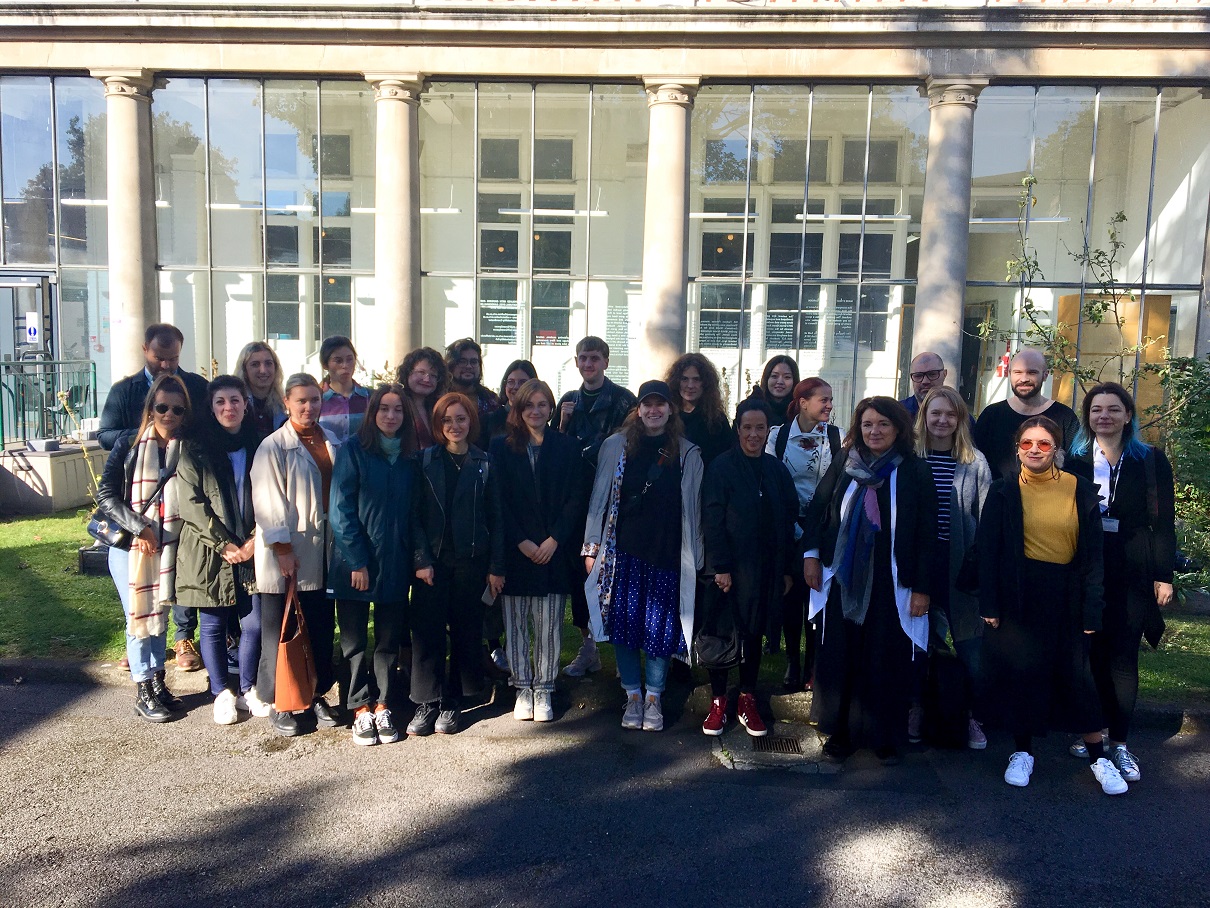
Students at the fashion tech hackathon. Photo courtesy of UAL
Students from universities in the UK, Sweden and Italy are at London College of Fashion, UAL this week to help collaboratively inform a curriculum for MA courses in wearable tech, smart textiles and digital manufacturing that will open for studies from 2021 in the three countries.
Around 30 students from London College of Fashion, UAL, Politecnico di Milano, Italy and University of Borås, Sweden will spend the week working with researchers from UAL and its university project partners and with industry partners including Adidas, to ‘hack’ the future of interdisciplinary education in fashion tech; informing a new curriculum for one of the first courses of its kind in Europe.
The project is designed to reflect how interdisciplinary teams involved in innovating for and creating wearable technology – including scientists, engineers and designers – can work together. It is part of E4FT (Education for Fashion Tech) led by the Swedish School of Textiles and University of Borås in partnership with London College of Fashion, University of the Arts London (UK) and Politecnico di Milano, Italy. Leading the project is Jose Teunissen, Dean of the School of Design and Technology at London College of Fashion, UAL and Professor of Fashion Theory, with support from Veronika Kapsali, Reader Materials Technology and Design and Julia Crew, Lecturer in Fashion and Sustainability.
Professor Jose Teunissen, Dean of the School of Design and Technology at London College of Fashion, UAL said:
“The fashion industry is still working to 19th century industrial processes but more and more, new technologies in textiles and garment-making are pushing the boundaries of what fashion and clothes can express and add to daily life: measuring performance, supporting health, connecting people and so on. It is a very exciting time; not only will the making process and business models radically change within a couple of years, but also the cultural value of what clothes and fashion represent.
Our research looked at the developing wearable technology industry in Europe and abroad and led to a collaborative project that would share expertise and ideas to inform an interdisciplinary curriculum for the study of wearable technology. London College of Fashion and our students bring expertise in concept and future thinking and our partner universities have strengths in engineering and scientific approaches. Together our students will help to define the skills and knowledge needed in the converging fields of wearable technology, smart textiles and digital manufacturing.”
The group will focus on five emerging fashion-tech directions:
Protection and body enhancement through artificial second skin: wearables and smart textiles with embedded sensors are able to monitor physiological, neurological and body kinematic parameters that are critical for healthcare.
Culture driven wearable: art, technology and interaction: generating thoughts and knowledge around human behaviours, interaction with the body, other people and the environment.
Hyper-body: connecting senses and materials: involving three of the five senses (eyesight, hearing, touch) enhancing or “substituting” them.
Fashion takes care: sustainability across design, production and retails covering the entire supply chain and it is intended as efficiency, recyclability, transparency, mission orientation and ethical upgrades.
Real/Virtual mixed environments: analogical/digital places created and customized with mixed reality as result of the addition of virtual and augmented reality; new dimensions for self-assembly and programmable materials; artificial intelligence for all the supply chain.
The project started on 1 September 2017 and continues until August 2020, financed by the European Union through the Erasmus+ strategic partnership for higher education programme. The project has already produced a benchmarking research report which maps and identifies the best practices among nearly 300 companies active in the fashion-tech field in Europe and worldwide.
Responding to rapidly changing times, the hackathon bridges the fashion field with innovative technologies, aiming to test and explore new approaches to fashion-tech design. The participants work in small interdisciplinary teams and will respond to ‘real life’ briefs set by industry in the areas of digital manufacturing, fashion and smart textiles which will converge to identify wearable solutions.
The Digital Anthropology Lab (DALab at London College of Fashion, UAL
Find out more about our research.

